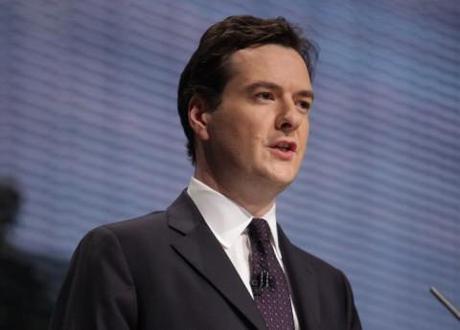
Chancellor George Osborne. Photo credit: Paul Toeman
UK Chancellor George Osborne is due to announce plans to stimulate the British economy in his Autumn Statement. However, thinktank the Organisation for Economic Co-operation and Development (OECD) has pre-empted the chancellor’s statement by releasing predictions that the UK will be back in recession by winter. Is there anything Osborne can say to increase confidence in the British economy? Or is the Autumn Statement already doomed to failure?
What to expect. The Guardian has published a guide to the likely content of Osborne’s statement, including plans to increase tax on bank debts, clear the way for lending to small businesses and create work placements for unemployed 18-24-year-olds. Despite these measures, the guide also said that the Office for Budget Responsibility (OBR) is expected to reduce its growth forecast for Britain in 2011 and 2012.
Contradictory messages. Information from senior ministers ahead of the Autumn Statement has been contradictory, argued Steve Richards in The Independent: “Extensive leaks suggest there will be announcements galore, from wage subsidies for the young to new infrastructure projects. At the same time, they insist they do not plan to spend any more overall cash than previously announced,” he wrote. Richards wrote that the chancellor faces a difficult balancing act, as he must be seen to be taking measures to improve the UK’s economic prospects without giving the false impression that he intends to increase government spending.
Choose a side. “In good times, politicians have the luxury of being able to offer something to everyone, but in bad times, there is no money and you cannot avoid having to choose,” said Rachel Sylvester in The Times (£). Sylvester said the Autumn Statement will reveal which groups Osborne has decided to favour, and suggested that these will include “middle-income working parents” and the young unemployed.
Focus on the corporate sector. “The OBR has been much too optimistic about the performance of the British economy,” wrote Roger Bootle in The Telegraph, arguing that the economy is unlikely to grow at all next year. Bootle said that the Autumn Statement needed to focus on “measures to encourage the corporate sector to spend more”, but was pessimistic about the possibility of achieving this: “Many of the difficulties in the way of truly radical measures derive from the political realities of coalition,” he said.
Judgment day. Shadow Chancellor Ed Balls described the Autumn Statement as “judgment day” for Osborne and Prime Minister David Cameron in The Mirror: “It is the day when we will find out that their reckless gamble with our economy has backfired,” he wrote. Perhaps unsurprisingly, Balls insisted that the Labour Party’s five-point employment plan was the way forward. However, it’s unclear whether anyone is listening: The Daily Mail reported that a new poll puts Osborne and Cameron 16 points ahead of Balls and Labour leader Ed Miliband when it comes to voters’ trust over financial issues.
Be bold. What’s more, Stephen Pollard argued in The Wall Street Journal that there’s actually very little difference between the Tory and the Labour position on the British economy – or at least, that’s how it seems because Miliband has yet to set out “an overall fiscal alternative” to the Coalition strategy. Pollard argued that voters’ disillusionment with Labour anti-spending cuts rhetoric means the Tories have a chance to “be far bolder” in their approach to the economy, but that it’s unlikely they’ll take the opportunity.

